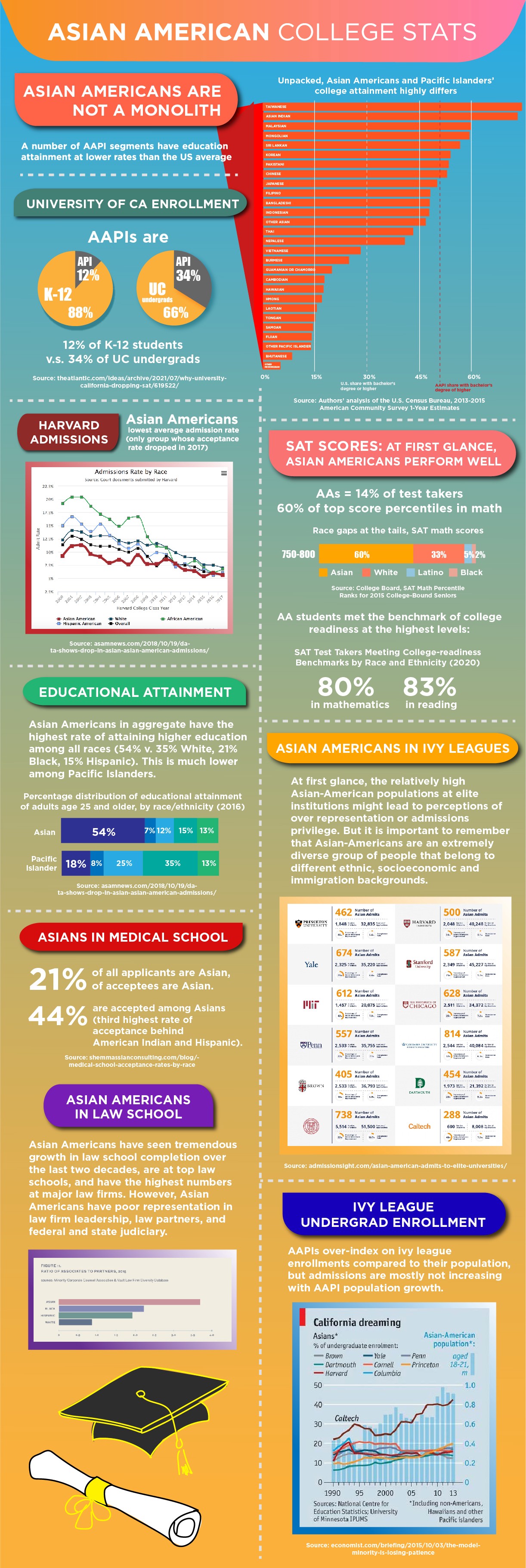Meritocracy v. Diversity — The Controversy Affecting Asian-Americans in College Admissions
With high performance KPIs on standard criteria (grades, test scores, extracurricular accomplishments), Asian-American applicants are perceived to be held to higher standards than other students in the college application arena. Thus, some Asian-Americans have claimed systemic discrimination, as is evident with recent legal cases. The issue is further complicated with mixed affirmative action rulings that are intended to allow historically underrepresented groups access to better opportunities. But another consideration beneath the surface is that Asian-Americans are not a monolith, and not all Asian groups are over-indexing on higher education opportunities. For example, there are as many as 18 Asian ethnic segments that have attained a B.A. degree at lower rates than the Asian-American average. As a result, the topics of meritocracy v. diversity are both complex and controversial, even within the Asian-American community.
Discussion Questions
- How can university admission processes strive to be fair and equitable to Asian-Americans and underrepresented groups?
- Food for Thought: How can we educate players in the college admissions ecosystem about more marginalized Asian-American ethnic groups and differences in the immigration waves that have contributed to discrepancies across different Asian populations?
- To what extent should Asian-Americans understand the benefits and tradeoffs of creating a diverse student body in the admissions process?
- Food for Thought: How do we enlighten Asian-Americans about the importance of aligning with BIPOC communities vs. perceiving a sense of competition?
